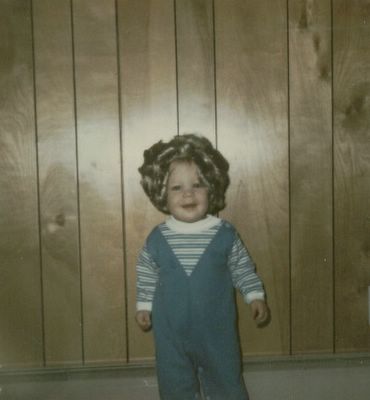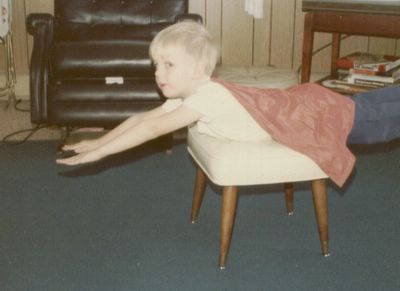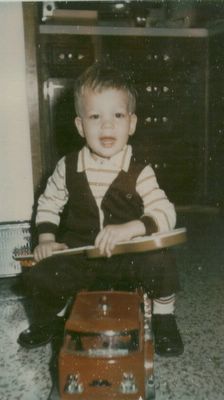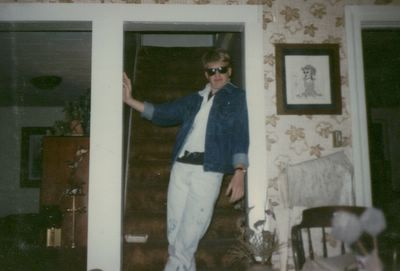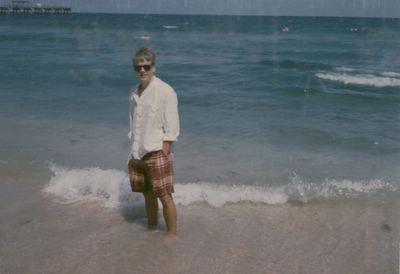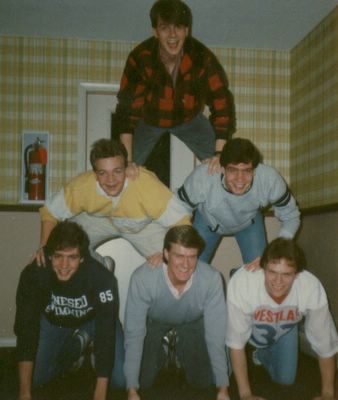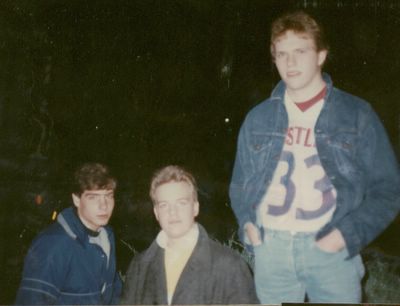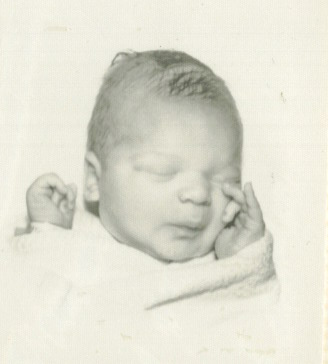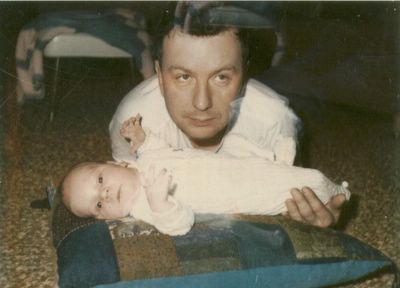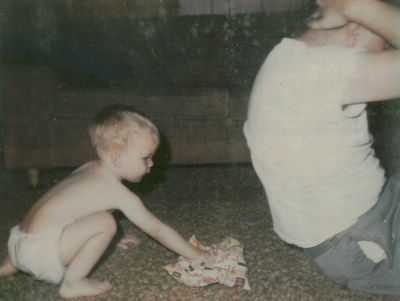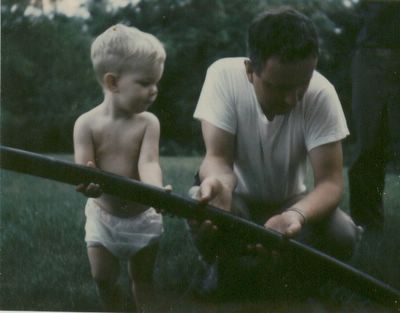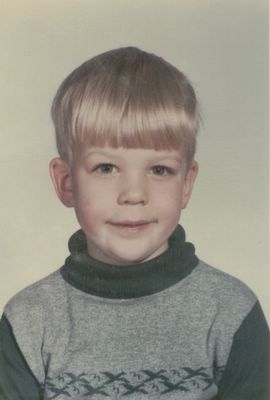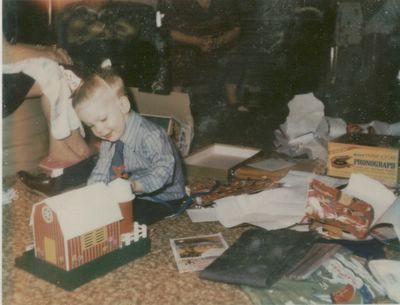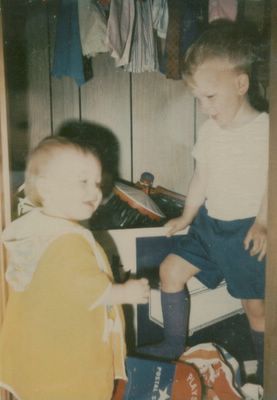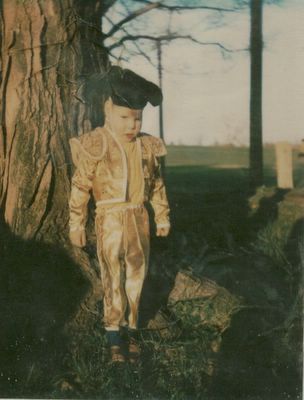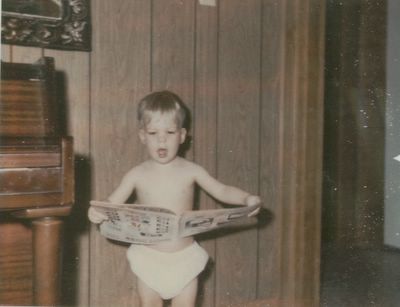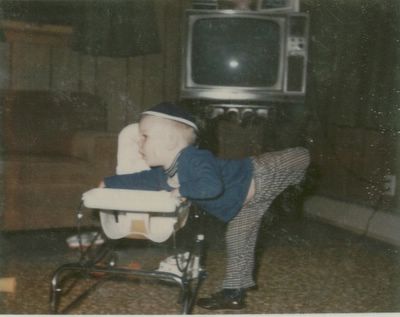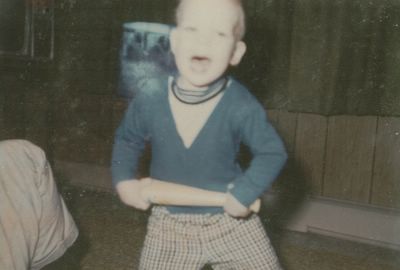Well,
Ken once remarked that he and I used the same brain, but on different days. But I've finally found something that we disagree on. I was just reading
his post on the Terri Schiavo case--something I've been discussing with people lately anyway--and I have to say I'm a little surprised at his conclusion. Not so much because he made it, but because I think it's got a little bit of misinformation in it. (Sorry, buddy.)
Let's start with what we both agree on. First, Terri Schiavo is in a vegetative state. An article just published in the
New England Journal of Medicine by Dr. Timothy Quill, professor of medicine, psychiatry, and medical humanities and the director of the Center for Palliative Care and Clinical Ethics at the University of Rochester Medical Center, Rochester, N.Y.
confirms this:
On February 25, 1990, Terri Schiavo had a cardiac arrest, triggered by extreme hypokalemia brought on by an eating disorder. As a result, severe hypoxic–ischemic encephalopathy developed, and during the subsequent months, she exhibited no evidence of higher cortical function. Computed tomographic scans of her brain eventually showed severe atrophy of her cerebral hemispheres, and her electroencephalograms have been flat, indicating no functional activity of the cerebral cortex. Her neurologic examinations have been indicative of a persistent vegetative state, which includes periods of wakefulness alternating with sleep, some reflexive responses to light and noise, and some basic gag and swallowing responses,
but no signs of emotion, willful activity, or cognition.
In addition, he points out that there has never been a case in which someone with Ms. Schiavo's condition has ever "come out of it." There have been a few cases where the patients did come out of a coma, but none showed the brain deterioration that she suffered, and they were all much shorter "coma" periods. Remember, this woman has been in this condition for 15 years. The overwhelming medical evidence seems clear: she will never recover.
I also agree with Ken that she never wrote a living will, or produced
any written document stating her wishes should she end up as she has. (But, I should point out that this would not necessarily indicate thoughts one way or the other, as Schiavo was a young woman without children at the time of the incident, and few people consider a living will at that age.)
But I think that's where we go our separate ways.
Ken, like so many other people I've heard, call the husband "shady," or "greedy." I just don't think there's any evidence to support that, simply supposition. If anything, Terri's parents are the ones that come off greedy. Let's look at what we can prove:
1) Michael Schiavo spent three years trying everything he could, including experimental treatments, to improve his wife's condition. Three years.
2) Yes, Schiavo did win a malpractice suit. He received $300,000 for himself, but $750,000 went to a trust earmarked for Terri's care.
3) Schiavo, and Terri's parents were essentially working as a team until shortly after the money in the above decision was awarded. While it is still unclear what exactly was said, Schiavo claimed that Terri's parents, the Schindlers, demanded that he share the award with them. The court
backed this up:
It is clear to this court that such severance was predicated on money and the fact that Mr. Schiavo was unwilling to equally divide his loss of consortium award (the $300,000) with Mr. And Mrs. Schindler.
Since a significant amount of monies had been set aside for Terri's care, and since Schiavo filed and pursued the lawsuit, and would seem to have rightfully received the money, I have to wonder: who is the "greedy" party here?
4) For those who would argue that Schiavo wants his wife to die to get his hands on her money, and that somehow the Schindlers must be the selfless ones since they are adamant about keeping Terri alive, let me point out one fact that should be obvious. If Terri dies, yes, Michael, as her spouse, would get something. However, if she stays alive, and--as the Schindlers have been pushing for--Schiavo divorces her and "moves on with his life," guess who then becomes the sole heirs? In addition, in 1994, the Schindler's petitioned to have Michael removed as Terri's guardian. The Schindlers later "dismissed that petition citing financial considerations as their motivation." I'm just saying...There's plenty of finger pointing to be done on both sides.
5) A quick note on this issue of Michael Schiavo living with another woman and having children with her. Do I need to point out that for the last fifteen years...Let me repeat that...
fifteen years, the man has been married to a woman who requires constant care, who cannot return his love, show him affection, or in any way engage in a meaningful relationship? Anyone want to cast the first stone?
Apart from these points, the case really comes down to one thing: what are the patient's wishes? And this is where, I think, everybody is getting it wrong. Ken says "this isn't a right-to-die case," but I disagree. That's exactly what it is. According to the law, anyway. It's true that Schiavo left no written instructions. However (and this is a BIG however):
The relevant Florida statute requires “clear and convincing evidence that the decision would have been the one the patient would have chosen had the patient been competent or, if there is no indication of what the patient would have chosen, that the decision is in the patient’s best interest.” Since there is no societal consensus about whether a feeding tube is in the “best interest” of a patient in a persistent vegetative state, the main legal question to be addressed is that of Terri Schiavo’s wishes.
In other words, the court has to try to figure out what the patient herself would want. The "rule of thumb" used in the Karen Ann Quinlan case in the 1970s stated something along the lines of: If the patient were to awaken for 15 minutes, but knew that she would then return to her previous state, what would she choose? In this case, the court DID make a determination as to Terri's wishes. After listening to witnesses from both sides (no, it's not just the husband saying she would want to die), the court decided that there was "clear and convincing evidence" that Terri Schiavo would not choose to be kept alive by machines. Now, if you'll permit me a small digression...
I just want to point out that the witnesses offered by Michael Schiavo could not be impeached under cross-examination, and their statements were reasonable and timely. However, (yes, another however) the evidence offered by the Schindlers included an alleged statement by an eleven-year old Terri, and another witness who claimed that Terri made statements while watching the Karen Ann Quinlan case, except that upon examination, the statements were apparently made six years after Quinlan's death, and which, I'm guessing, the court found suspect. (Mainly because the judge said as much, noting: "The court further notes that this witness had quite specific memory during trial, but much less memory a few weeks earlier on deposition." Ouch.)
Back to the matter at hand. The court's decision was
upheld by the Second District Appeals Court. As a matter of law, the court has found that Terri Schiavo's desire was to NOT be kept alive by extraordinary means. That's pretty much the end of the story. After all, that's the whole point. No matter what you think of Michael Schiavo or the Schindlers, legally, this case has been decided. There appears to me no miscarriage of justice, apart from a manipulative press and a pandering congress, both of which had absolutely no business getting involved. In the end, folks,
that's really what sickens me.
